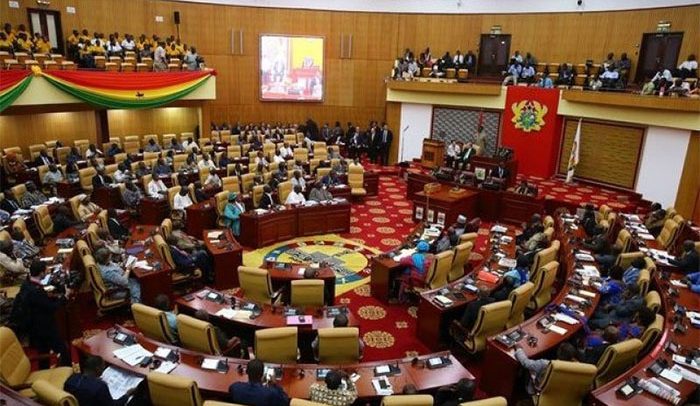Parliament has approved a report submitted by its Finance Committee on the guidelines for considering and approving requests for the granting of tax waivers to companies under the One District, One Factory (1D1F) programme.
The guidelines seek to establish the conditions under which a new or an already existing company may or may not qualify for tax incentives under the initiative.
This is to help in pursuing an industrialization agenda of the government by building at least one factory in each district of the country.
These guidelines are aside the main Tax Exemption Bill which is currently before the Finance Committee.
The Finance Committee had its recommendations approved by the House on Wednesday, June 15, 2022 with some additional amendments to the document after a fruitful bi-partisan debate which has further enriched its contents.
Under the guidelines, a scope of tax waivers will be granted to companies moving to set up factories in new districts; and a limited scope of waivers for companies that are not moving to new districts but need help to expand.
Per the guidelines, import taxes will not be approved for materials which are available in Ghana.
This became necessary after some Members of Parliament raised concerns in the past about the blanket approval of tax waivers requested by the Finance Ministry and the Ministry of Trade and Industry on behalf of 1D1F companies.
It came to light when the House considered and granted the tax incentives to some four prominent companies under the programme.
The House resolved not to approve any further tax waivers for any 1D1F company until it is presented with a framework which would guide Parliament’s decision to approve or not to approve any such requests.
When the Chairman of the Finance Committee, Kwaku Agyeman Kwarteng, presented the report to the House, he indicated that it had taken the Committee a while to report back to Parliament because it had to take time to consult the Ministry of Trade and Industry as well as other stakeholders in order to ensure conformity with the financial laws of the country and to meet the goals of the policy.
While Seconding the motion for the adoption of the Committee’s report, the Ranking Member on the Finance Committee, Cassiel Ato Forson, indicated that the 1D1F policy was being abused by businessmen in the country, hence the need for the Government and Parliament to regulate the policy in such a way that it would not be abused.
“We want them to benefit but we need to regulate the taxes. We have come to a conclusion that, if you are new company coming into the economy for the purposes of 1D1F, we will be giving you the full scope of tax exemptions.
“But Mr. Speaker, we said that if you are an existing company in the system already and you want to expand and you want to take advantage of the tax exemption regime, we would give you a limited scope of this tax exemption regime,” the Ranking Member indicated.
The scope of tax incentives that could be granted a company seeking to set up a factory in a District in which the said company has no existing factory shall be: a. Import GETFund Levy, b. Import National Health Insurance Levy, c. EXIM Levy, d. Import Duty, e. Import VAT, f. Corporate Income Tax for the first 5 years of operation.
Below is a summary of the guidelines as approved by the House to be applied in considering all requests for the grant of tax waivers under the 1D1F programme.
The scope of tax incentives that could be granted a company seeking to expand an existing factory shall be: a. Import GETFund Levy b. Import National Health Insurance Levy c. EXIM Levy d. Corporate Income Tax for the first 5 years of operation.
Parliament shall not approve the waiver of import taxes on imports that are available in Ghana.
By Vincent Kubi

